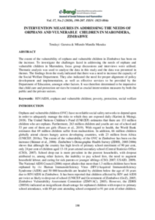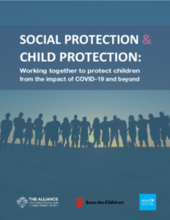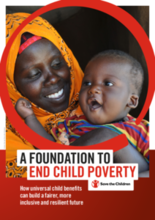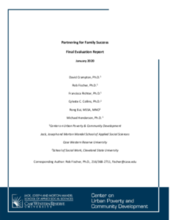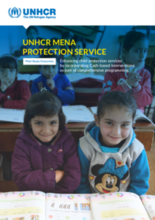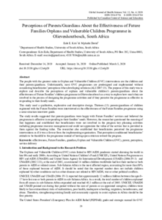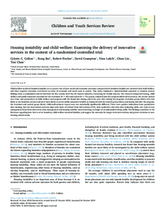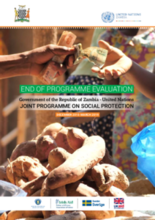Displaying 71 - 80 of 461
To investigate the challenges faced in addressing the needs of orphans and vulnerable children in Marondera, focus group discussions and interviews were utilised. Thematic analysis was used to analyse the data in this study and the data was presented in themes.
This paper presents evidence of how social protection approaches can contribute to child protection outcomes and outlines recommendations which call for strong mobilization and uptake by governments, UN and multilateral development agencies, regional bodies, donors, and Civil Society Organizations (CSOs).
This report from Save the Children calls upon governments, donors and other development partners to urgently support an expansion in social protection coverage of children and their caregivers (predominantly women), working progressively towards UCBs.
This report presents the results of an evaluation of the Partnering for Family Success (PFS) program, which was conceived as an innovative intervention to address the particular needs of housing unstable families who had a child in the custody of the county child welfare agency.
This report presents the results of multi-country research launched in 2018 on refugee data in Egypt, Jordan and Lebanon to study the impact of cash-based interventions (CBI) on child protection outcomes.
Medidas preventivas e de mitigação do impacto do COVID-19 nos grupos vulneráveis e de alto risco entre os beneficiários do PSSB.
The purpose of this study was to explore and describe the perceptions of orphans and vulnerable children’s parents/guardians about the effectiveness of Future Families’ children programme in Olievenhoutbosch as a way to explore how much they are involved in the process of designing the programme activities and if they perceive the programme as effective in responding to their family needs.
The purpose of this study was to investigate the extent to which government allocated financial resources, management procedures and stakeholders are major determinants of implementation of cash transfer program for orphans and vulnerable children in Isiolo County, Kenya.
This study employed a mixed-methods approach to examine process findings from a randomized control trial from the first county-level Pay for Success initiative, Partnering for Family Success.
This report details the end of programme evaluation Government of the Republic of Zambia-United Nations Joint Programme on Social Protection as a way of understanding and assessing its operational context and the effect the technical assistance had on the implementation of National Social Protection Policy (NSPP) during the programme’s lifetime.

